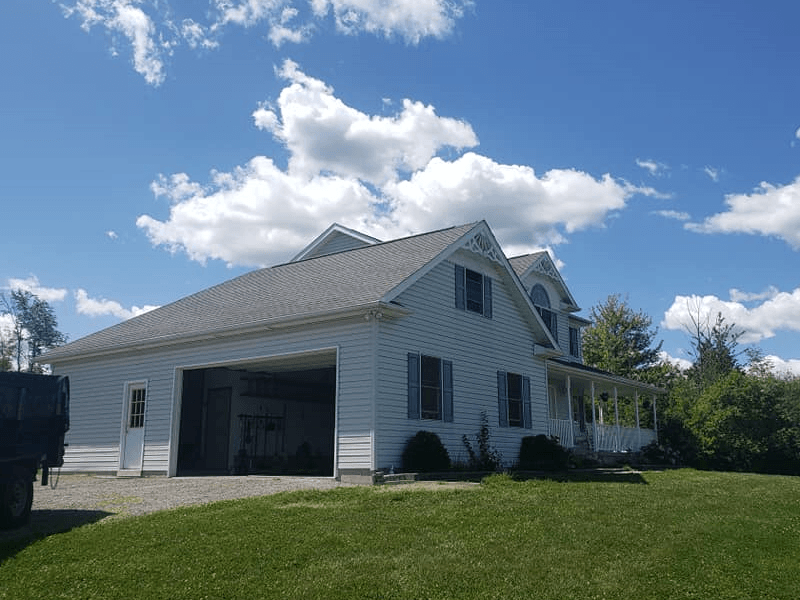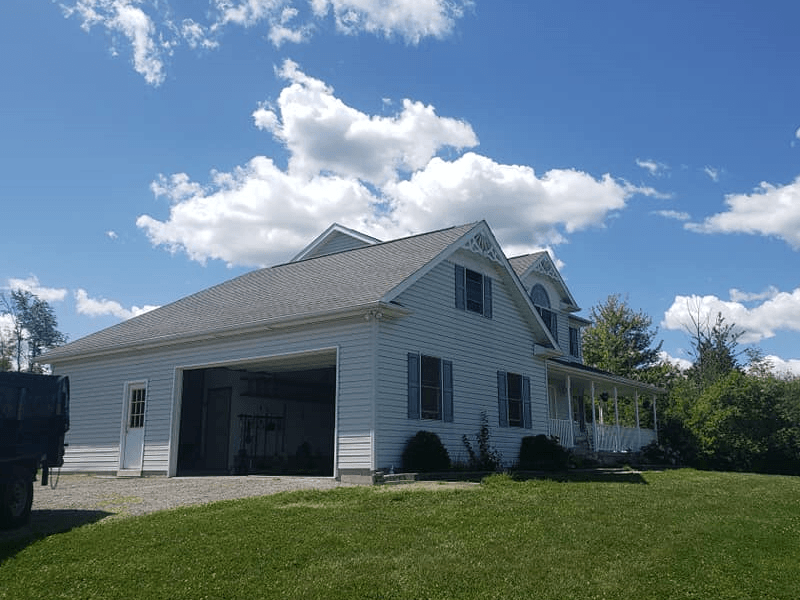Introduction: The Importance of Roof Maintenance
Maintaining a roof is not just about aesthetics; it’s an essential part of home and building ownership that ensures safety, longevity, and investment value. A well-maintained roof protects against the elements and prevents costly repairs down the road. Regular inspections are critical in identifying potential issues before they escalate into significant problems. In this article, we will explore How to Maintain Your Roof with Regular Inspection Services, detailing everything from what to look for during inspections to choosing the right roofing contractors.
What Is Roof Maintenance?
Understanding Roof Maintenance
Roof maintenance involves regular inspections and timely repairs to ensure that your roof remains in good condition. This can include cleaning gutters, checking for leaks, inspecting flashings, and ensuring all roofing materials are intact.

Why Is It Necessary?
Over time, wear and tear can lead to significant damage if not addressed promptly. Regular maintenance helps extend the life of your roof, saving you money on roof replacement costs and keeping your home safe.
The Benefits of Regular Roof Inspections
Identifying Problems Early
One of the main benefits of regular inspections is the early detection of issues like leaks or damaged shingles. By catching these problems early, you can avoid more extensive repairs later.
Cost-Effective Solutions
Regular inspections can significantly reduce long-term costs associated with emergency roof repair services. Knowing the state of your roof allows for better budgeting for necessary repairs or replacements.
Insurance Compliance
Some insurance policies require regular maintenance checks as a condition of coverage. Keeping records of inspections can help you stay compliant.
How Often Should You Inspect Your Roof?
Seasonal Inspections
It is advisable to inspect your roof at least twice a year—once in spring and once in fall. Seasonal changes can affect roofing materials differently; thus, monitoring them regularly ensures timely interventions.
After Major Weather Events
Following severe storms or extreme weather conditions such as hail or wind damage, it's wise to carry out an inspection. This will help identify any storm damage that may have occurred.
What to Look For During a Roof Inspection?
Assessing Roofing Materials
When inspecting your roof, check for worn-out shingles or tiles. Look for signs of sagging or missing pieces which could indicate underlying issues that require immediate attention.
Inspecting Flashings and Vents
Flashings are crucial areas where water could penetrate if not sealed correctly. Inspect all flashing points around vents and chimneys for cracks or rust.
Choosing Licensed Roofing Contractors
Why Go for Licensed Contractors?
Hiring licensed roofing contractors assures you that they meet industry standards and regulations. They possess the expertise necessary to conduct thorough inspections and perform quality repairs or installations.
Finding Certified Roofing Contractors
Look for contractors who hold certifications from recognized organizations. Certified roofing contractors often have access to high-quality materials and advanced techniques that non-certified ones might lack.
Emergency Roofing Services: When You Need Them
Recognizing an Emergency Situation
Some situations necessitate emergency roofing services—such as significant leaks during heavy rainstorms or visible sagging in your roof structure. In such cases, immediate action is crucial.
Types of Emergency Services Available
Emergency services range from urgent leak detection solutions to temporary roof repair measures until more permanent fixes can be arranged.
Roof Repair Services: Understanding Your Options
Common Types of Repairs
Roof Leak Repair: Addressing leaks quickly minimizes water damage. Flat Roof Repair: Flat roofs require special attention due to their drainage challenges. Metal Roof Repair: Metal roofs need specific techniques due to their unique materials. Shingle Roof Repair: Replacing missing or damaged shingles is essential for maintaining integrity. Tile Roof Repair: Broken tiles should be replaced immediately to avoid leaks. Asphalt Roof Repair: Routine maintenance helps prevent asphalt-related issues from escalating into larger problems.Estimating Roof Repair Costs
Factors Influencing Costs
The cost of roof repair varies based on several factors including:
- Type of material Extent of damage Labor costs in your area Accessibility issues Emergency service needs
Getting Accurate Estimates
To get a reliable estimate, it’s best to consult multiple roofing companies for quotes on their services before making a decision on which one aligns with your budgetary constraints.
Understanding Roof Replacement Needs
When Is Replacement Necessary?
If your roof is over 20 years old or has sustained significant damage beyond repair, replacement may be necessary rather than opting for continual patchwork repairs.
Evaluating Replacement Costs
Like repairs, replacement costs depend on various factors including:
- Size and complexity Roofing materials chosen Local labor rates Disposal fees for old materials
Factors Affecting Roof Lifespan
Quality of Materials Used
Investing in high-quality materials during installation will ensure longevity compared to cheaper alternatives which might require frequent replacements or repairs.
Environmental Conditions
Harsher climates with extreme weather conditions tend to wear down roofs faster than milder climates do; thus regular maintenance becomes even more critical in those areas.
How Weather Impacts Your Roof Health
Storm Damage Assessment
After storms with high winds or hail, it's vital to assess any potential storm damage promptly through professional inspection services specializing in storm damage roof repair.
Long-Term Effects of Climate Changes
Climate change leads to unpredictable weather patterns that can severely impact roofing integrity over time; understanding this helps homeowners make informed decisions regarding preventative measures before major events occur again.

DIY vs Professional Inspections: Weighing Your Options
| Criteria | DIY Inspections | Professional Inspections | |------------------------|----------------------------------|----------------------------------| | Cost | Low (tools needed) | Moderate (service fees apply) | | Thoroughness | Limited | Comprehensive | | Safety | Risky without proper training | Safe due to expertise | | Time | Time-consuming | Quick assessments |
While DIY checks can be helpful for minor observations, professional inspections offer comprehensive evaluations ensuring every aspect gets covered effectively leading towards future decisions based upon expert advice received post-inspection completion!
FAQs About Maintaining Your Roof with Regular Inspection Services
How often should I have my roof inspected?- It's recommended at least twice a year—spring and fall—as well as after major storms.
- Missing shingles/tile pieces, sagging areas, visible stains inside your home indicating possible leaks, etc.
- Yes! However, professionals provide a thorough evaluation while ensuring safety during high climbs/at heights!
- Absolutely! They guarantee adherence standards improving overall job quality reducing future risks/costs associated repairs!
- Depending largely on material choice & environmental conditions – typically ranges anywhere between 20–50 years!
- Costs vary based on urgency & extent required but remember they often save you from bigger financial burdens later!
Conclusion: The Key Takeaways on Maintaining Your Roof
In summary, maintaining a robust roofing system through regular inspection services is crucial not only for ensuring safety but also preserving property value over time while preventing unnecessary expenditures related emergencies arising unexpectedly! By hiring licensed contractors specialized across various types roof repair including residential/commercial sectors alike – you’ll ultimately find yourself investing wisely towards long-lasting results avoiding pitfalls associated neglect combined improper handling practices! So don't wait too long; schedule an inspection today because when it comes down protecting what matters most — prevention truly does go far beyond cure!